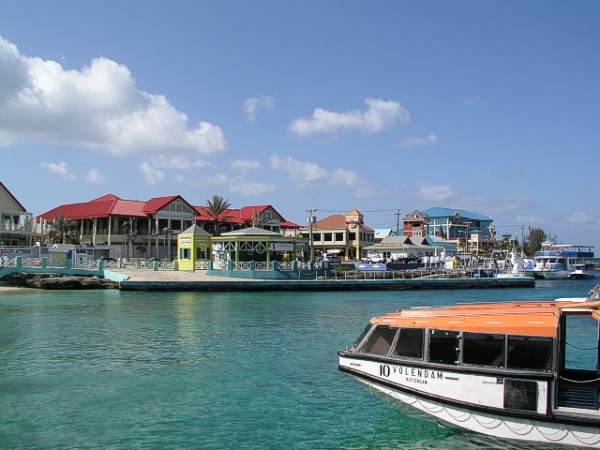

|
At 8.00 am we anchored near the port of Georgetown on the island of Grand Cayman, the main island of the Cayman Islands. The Cayman Islands are located in the Caribbean Sea and consist of three islands. Things to do here are several watersports including diving and snorkeling and seeing and touching stingrays at Stingray City, visiting the Turtle Farm and a place called Hell, and do some shopping of course. 
|


